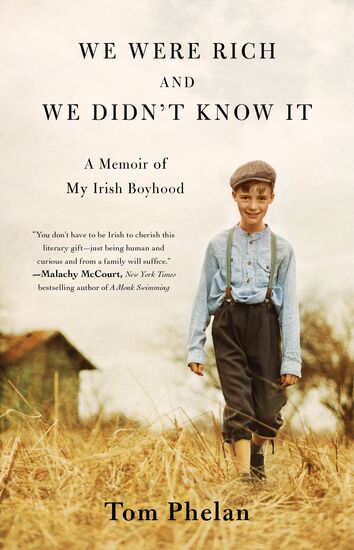Poetry is a lie that tells the truth.
No matter how autobiographical it may seem, no matter how enriched it is by actual people or incidents, verse is fiction told by or about a created self. It is something imagined, invented, and-in the etymology of "fiction"-feigned. At its most powerful, poetry feels real and thus becomes real to the reader, who collaborates with the writer in its meanings. In his 1955 poem "Asphodel, That Greeny Flower," William Carlos Williams states: "It is difficult / to get the news from poems, / yet men die miserably every day / for lack / of what is found there."
Most poets delight in multiple, thoughtful interpretations of their verse because they know that, once published, it no longer belongs to them. It belongs to us.
When I read Irish-American poet Terence Winch's four previous non-chapbook volumes of verse, "Boy Drinkers" (2007), "The Drift of Things" (2001), "The Great Indoors" (1995; Columbia Book Award winner), and "Irish Musicians / American Friends" (1986; American Book Award winner), I recognized parts of myself in them-not literally but emotionally.
Empathy is not enough, however. A picture of an abandoned puppy can elicit empathy. So can the doggerel of Rod McKuen. Much more in conceptualization and execution needs to be present in order to stamp poets as exceptional. Their purpose is not to dispense wisdom like a gumball machine, but to coax a closer examination of life that delivers a question mark, not an exclamation point.
Born in the Bronx to Irish immigrant parents, 65-year-old Terence Winch is an exceptional poet. His place in contemporary American letters should rise with "Falling Out of Bed in a Room with No Floor," his fifth collection of poetry and his best to date.
The wit of that title seeps into several of his poems. In "The Garbage Sacrifices," a family forgets to put its bag of refuse in a can alongside the cans containing the bags of their neighbors' refuse for pickup. In a kind of musical chairs for garbage, whenever "a bag is missing, one family always disappears."
Winch's Catholic upbringing manifests humor as well. "I believe in the Holy Ghost, but not the Holy Spirit," he notes in "Belief System." In that same poem, in a display of gnomic drollery worthy of comedian Steven Wright, Winch writes: "I believe that non-possession is one-tenth of the law."
But his playfulness is not solely intended to produce smiles or laughs. Its lightness often carries the weight of hardened disappointment and hard-won insight. "You are never wrong, you will never die, / money will come to you. When we got to the terminal we saw things / as they really are. The snap in the judgments, the rude awakenings, / that feeling you get falling out of bed in a room with no floor": those lines conclude his poem "Side Trips." And in his poem "Oral History" is this sharp jab of a jest: "You said you'd teach / me to tell time. I said, tell time what?"
Poems inspired by his father and mother convey a unique poignancy. In "Proclamation for My Father in 1965," the narrator-father confesses that "the thing you most fear in life all boils down / to your own invisibility, there for all to see." And "Gigs with My Father" lists "drum, accordion, sax, / and banjo" leading to this question: "Is anything left of you? I wish spirits / did inhabit things. That would be great. / I could play your banjo and bring you back."
Winch's "Memo to Bridie Flynn" is filled with the regret, frustration, longing, and love that a son feels about a departed mother: "You'd be ninety-nine if you were still alive. But you found / it necessary to die in 1962. Jesus, Mom, 1962! Kennedy / was president. I was in high school. Even I, your baby, / am older than you ever were." The poem ends with a demand softening into a plea: "Just once, pay a little visit. / Tell me what I need to know before you go."
According to William Butler Yeats, "We make out of the quarrel with others, rhetoric, but of the quarrel with ourselves, poetry." The poetry of Winch reveals that he quarrels with himself. In "The Age of Enlightenment," he writes: "Death does not exist for any of us / because we would have to survive death / for it to have any meaning, so it can't / have any. Can we finally, then, please put / this obsession to rest?" Yet in "Elf Storage," a poem appearing later in his book, Winch's obsession has clearly not been put to rest: "I wonder how long / I'll live. Some people are not afraid / to die, but it scares me to death."
This contradiction stems from the poet's persistent probing into what he fears and believes. His vacillations between hope and despair, dependence and independence, anger and contrition, and confusion and clarity reflect the wobbly balances we all try to strike. They feel real because they're messy. Winch's art never conceals that fact. He explores disorder with surgical neatness.
As engaging as his free verse is, Winch's embrace of established poetic form is even more impressive. He is among America's most skillful living writers of villanelles, and his new volume of verse offers three superb ones: "What Dreams Tell Us," "Stealing Your Pills," and "Against Low Self-Esteem."









